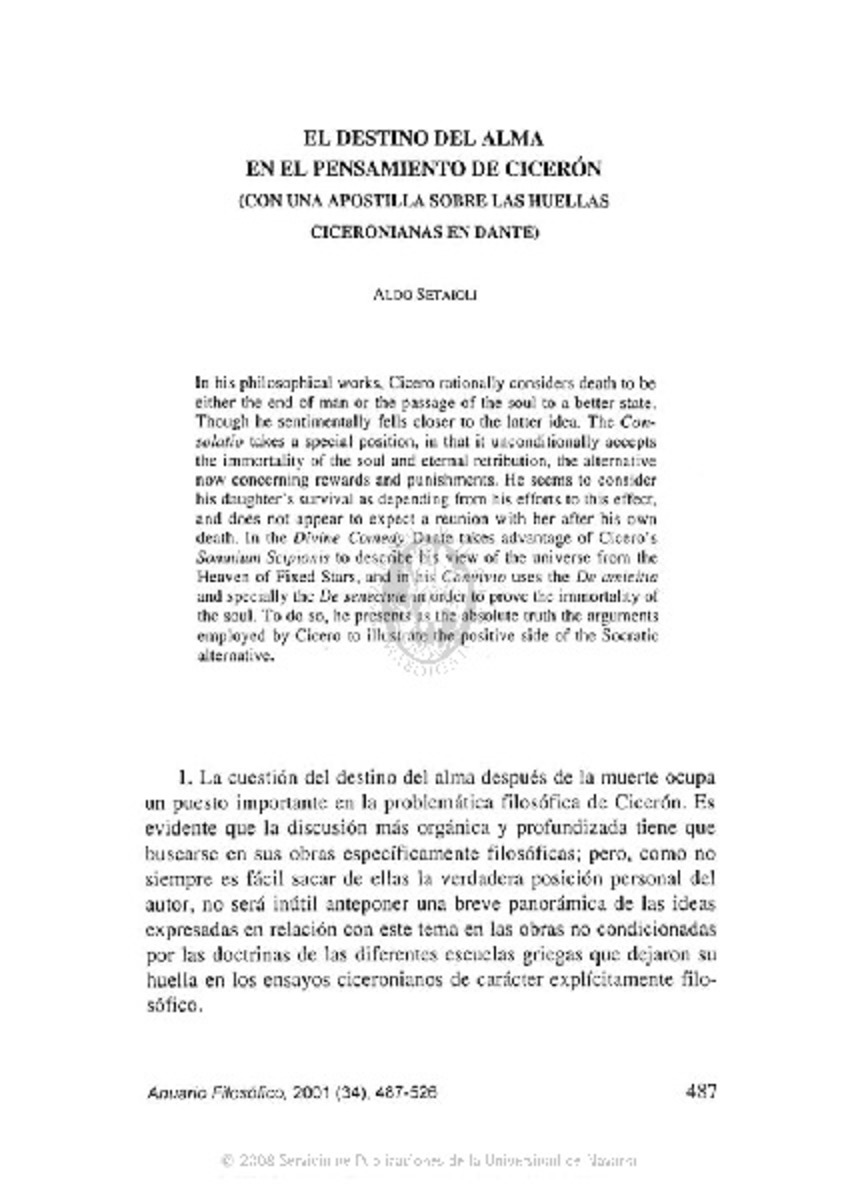El destino del alma en el pensamiento de Cicerón (con una apostilla sobre las huellas ciceronianas en Dante)
Files in This Item:
Statistics and impact
Items in Dadun are protected by copyright, with all rights reserved, unless otherwise indicated.







